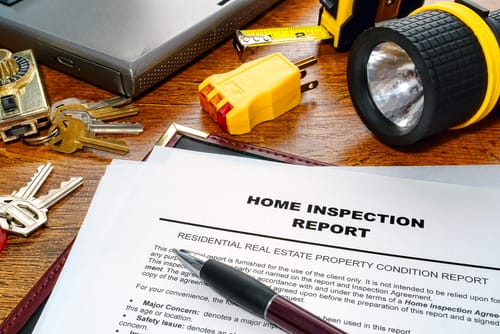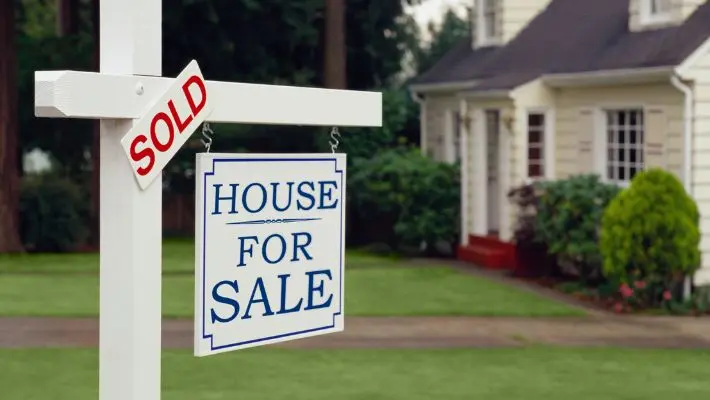
You're Selling Your Home: Here's What You Should Know About Inspections
Home inspections can be stressful. But knowing what to expect, how it works, and how it can impact your sale can help you feel more prepared.
As you navigate the home selling process and get closer to closing out the transaction, your property must undergo a home inspection. While home inspections can cause anxiety in even the most confident sellers, knowing what to expect, how it works, and how it can impact your sale can help you feel more confident in this step.
What to Know About Home Inspections
Home inspections are an essential part of both the home buying and selling process. They ensure there are no hidden issues present on the property by bringing all maintenance needs or issues to light with a professional inspector’s report.
A home seller also has the option to hire a home inspector before selling their home. Taking this extra step allows sellers to make any necessary repairs before they even list their home on the market. It also provides a clear, transparent, and factual assessment of the home to help inform its price.
Preparing for a Home Inspection
Thankfully, at this stage in the selling process, you’re inching closer to the end of the transaction, so there’s not a whole lot you need to do to prepare for the home inspection. Since you’ll be asked to vacate the property for the home inspection, there is some preparation you’ll need to take.
If you’ve already been made aware of repairs you need to make, and they’re easy to manage and get done, try to get them handled before the inspection. Make sure your home is clean, clutter-free, and any pets are removed from the home when the inspection is scheduled to take place. Lastly, ensure all areas of the home are easily accessible: unlock any doors and provide any access guidance to places like attics or basements if needed.
What You Can Expect to Take Place During the Home Inspection

Since you’ll be out of the house, we’re pulling back the curtain on what really happens in your home while it’s being inspected. The primary focus of the home inspector is to examine the property’s structure and the major systems of the property, including but not limited to:
- The property’s foundation and framing
- Plumbing and heating systems
- Electrical systems
- The roof
- Any additions or modifications to the home
- The HVAC system
- Windows and doors
The goal of the inspection? To identify any and all potential maintenance issues the home may have. This makes the buyer aware and allows them to negotiate home repairs or contingencies with the seller potentially.
Who Attends the Home Inspection?
While you’re away from your home while it’s being inspected, you’re likely wondering who else will be in attendance besides the inspector. Commonly, the buyer’s agent is the only other person present with the home inspector, though buyers may also attend if their schedule allows.
How Long Will the Home Inspection Actually Take?
The home inspector is looking at your home top to bottom, inside and out. They have to do their due diligence to ensure any and all concerns with the home are captured, no matter how big or small. On average, home inspections take between two to two and a half hours and depend on the property's size.
What Impact Does a Home Inspection Have on Selling My Home?
You understand the importance of a home inspection and what it entails and may be wondering how the findings of the inspection and the report can impact the sale of your home. Here’s what it may look like after the inspection report has been received and reviewed:
The Buyer Has Negotiating Power

If the home inspection results find substantial or even simply noteworthy repairs are needed, the buyer has more negotiating power. They can negotiate the terms of the real estate contract, like requiring the seller to fund the repairs. Sometimes, the buyer may adjust the amount they’ve offered for the home.
The Buyer May Back Out of the Deal
This is a more extreme example, but if a home inspection discovers substantial issues — like health hazards or severely faulty electricity, to name just a couple — the buyer may back out of the deal altogether. If your home will cost buyers more to repair than they deem worthy, the odds of them staying interested drop substantially.
Get Hands-On Help from a Trusted, Expert Real Estate Agent
Don’t leave the selling process up to fate. Each step can lead to many questions, making the process confusing. Instead of struggling to sell, get hands-on guidance from a professional real estate agent in your local area every step of the way. They’re ready to meet you — get connected with them on RealEstateAgents.com now.






